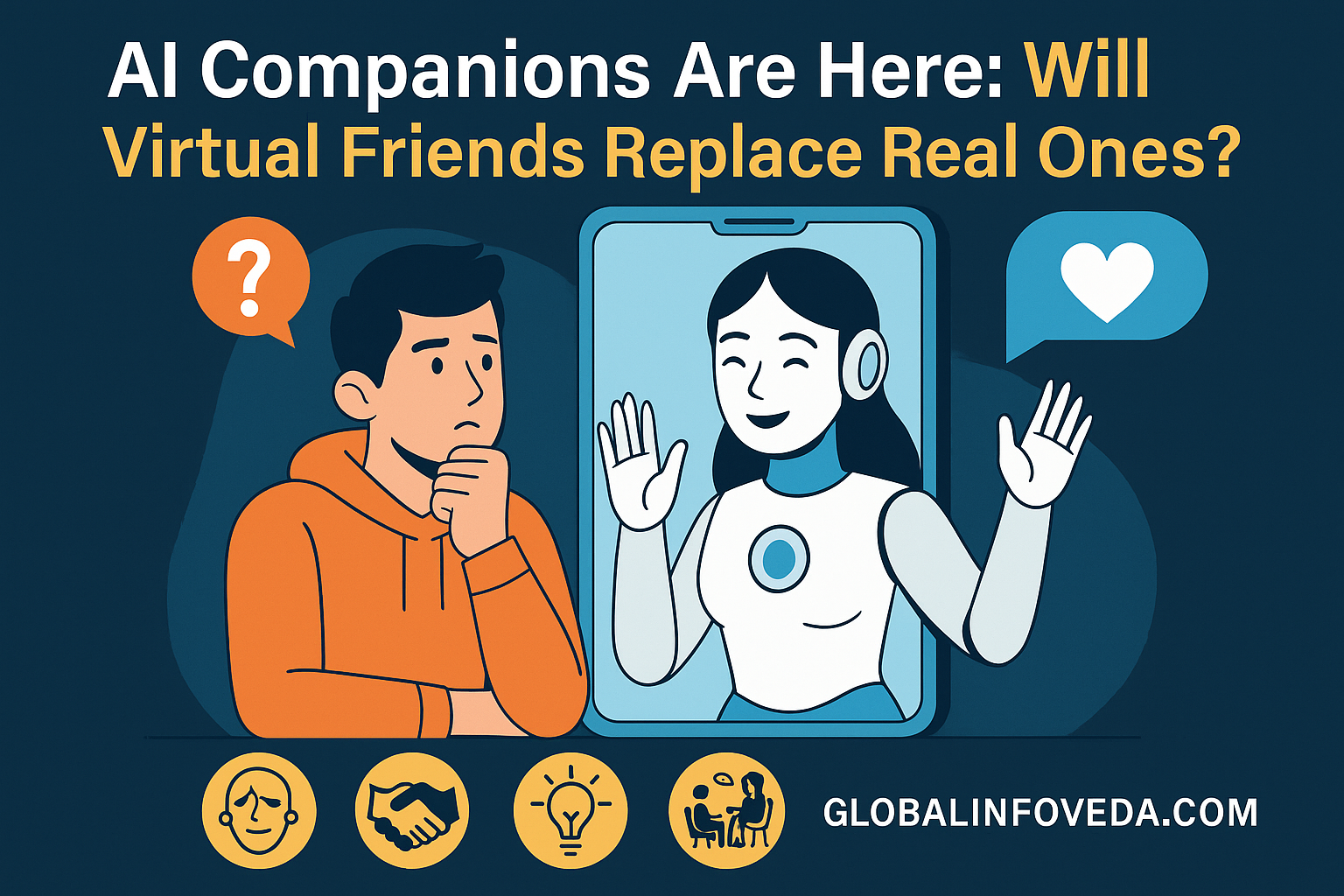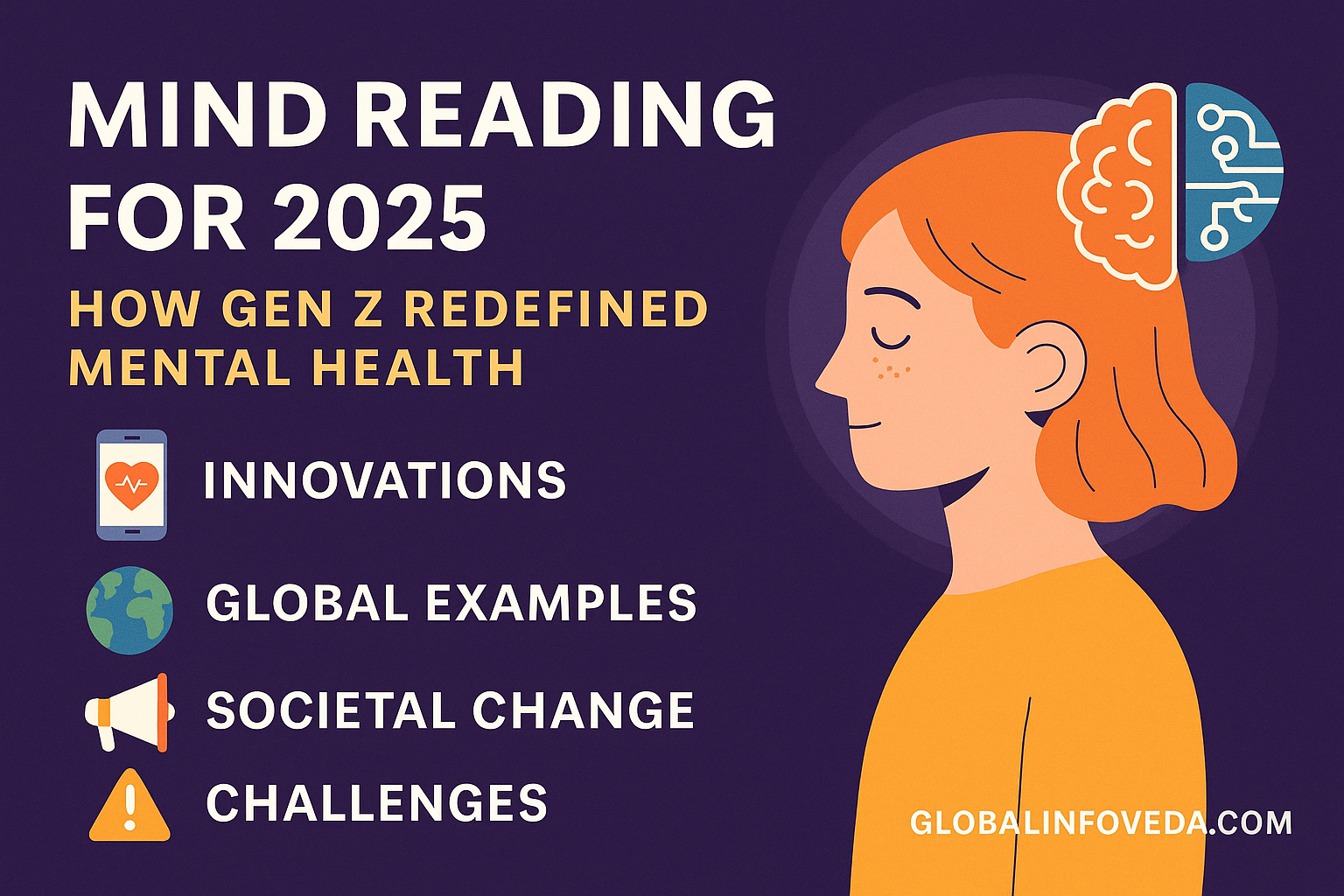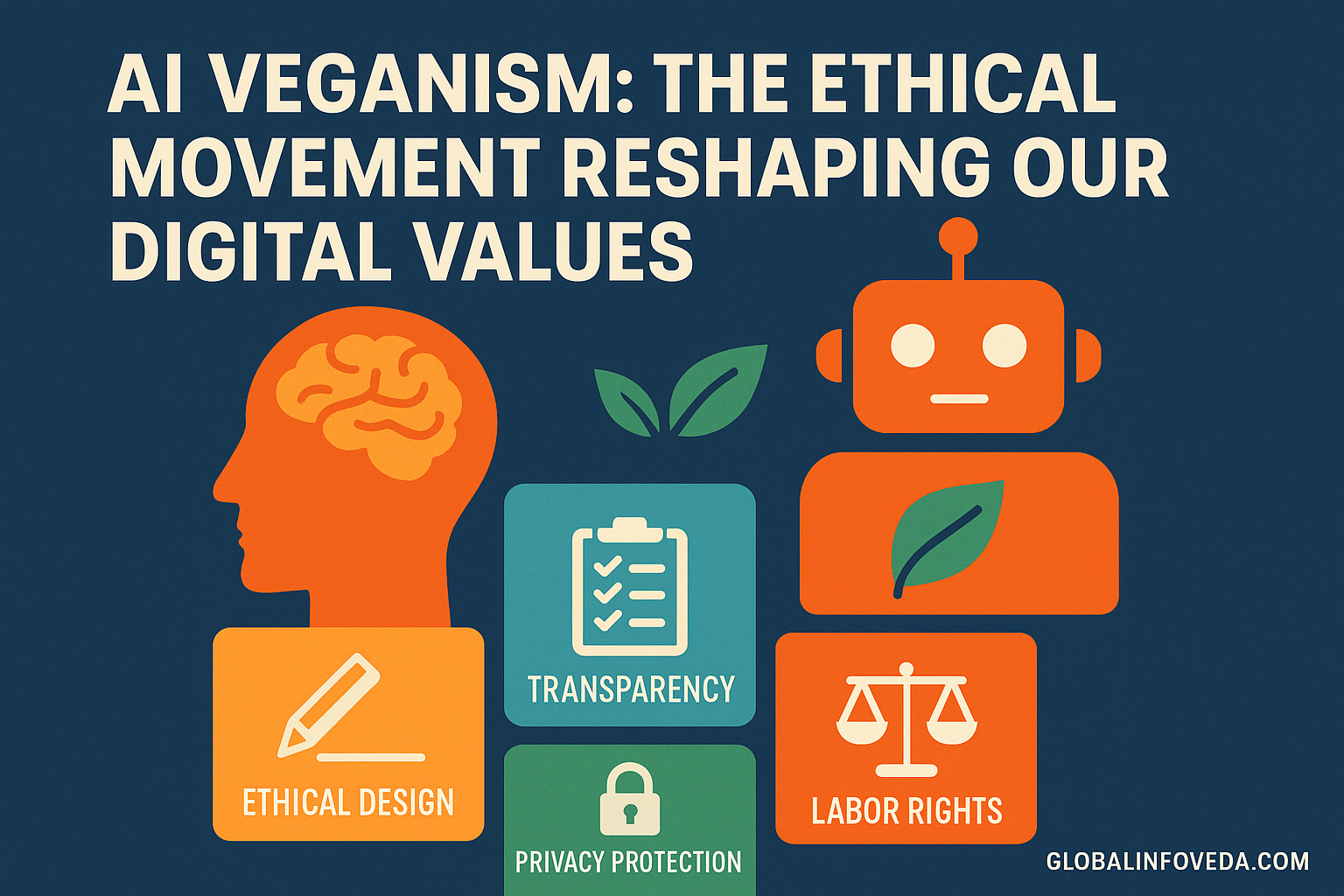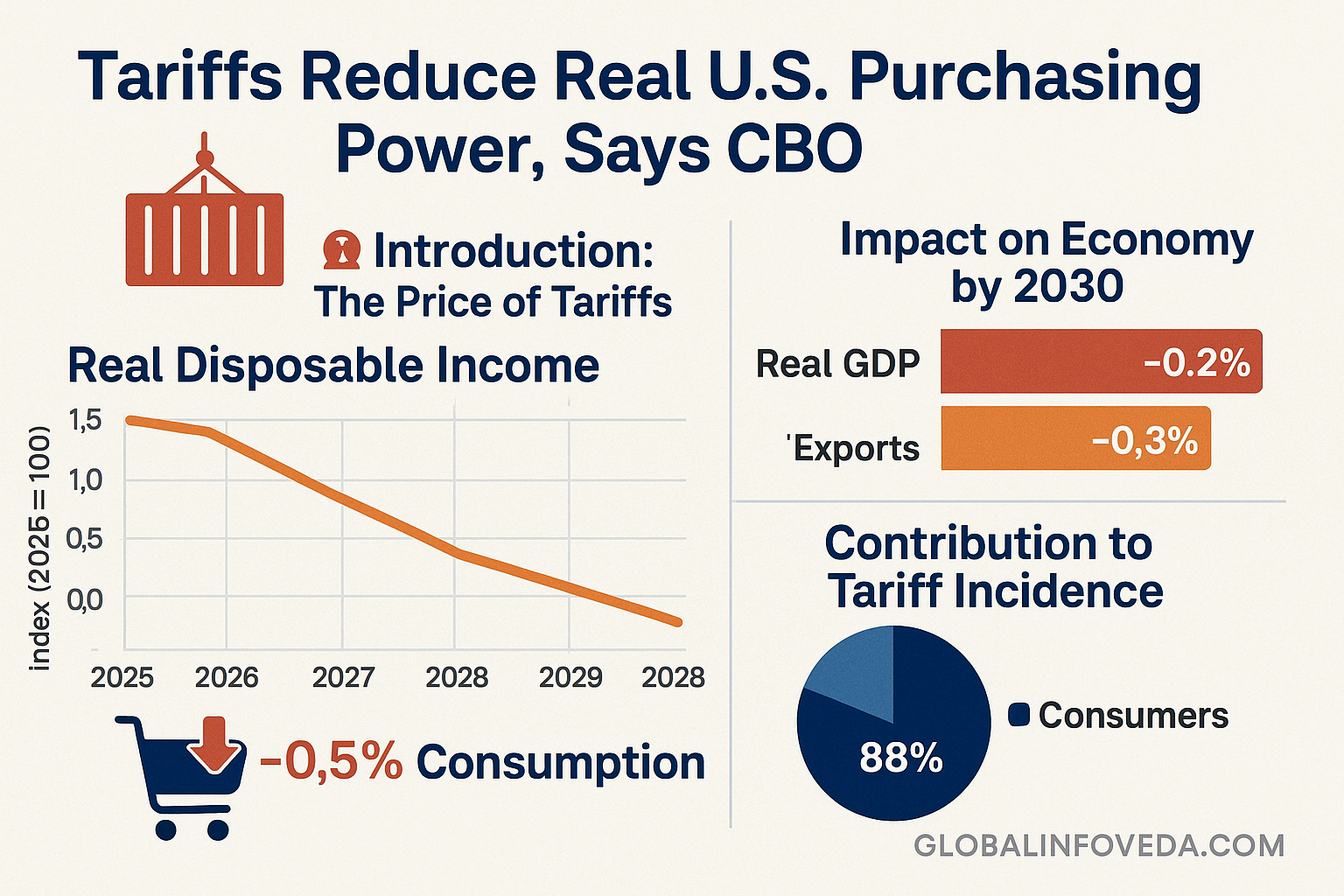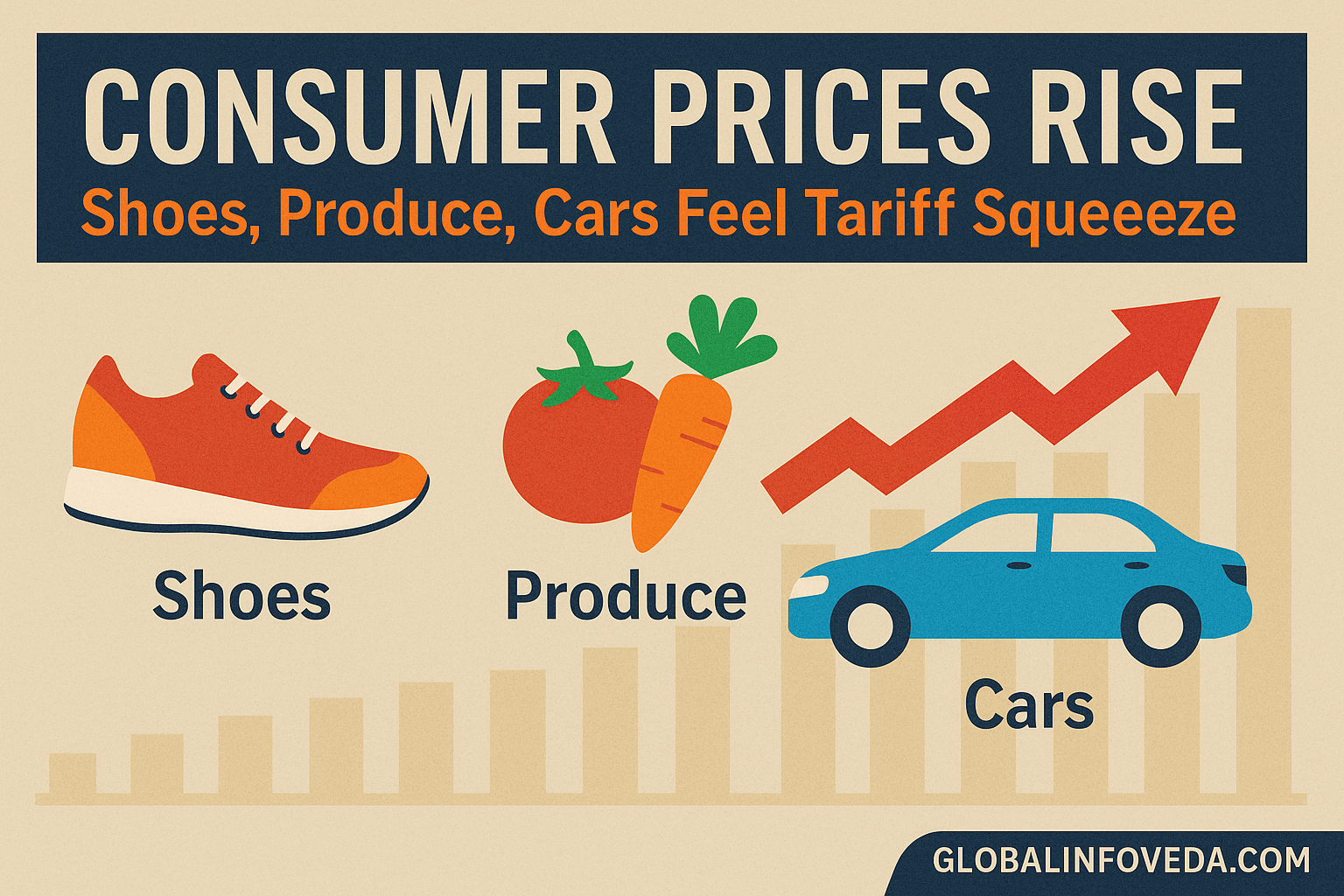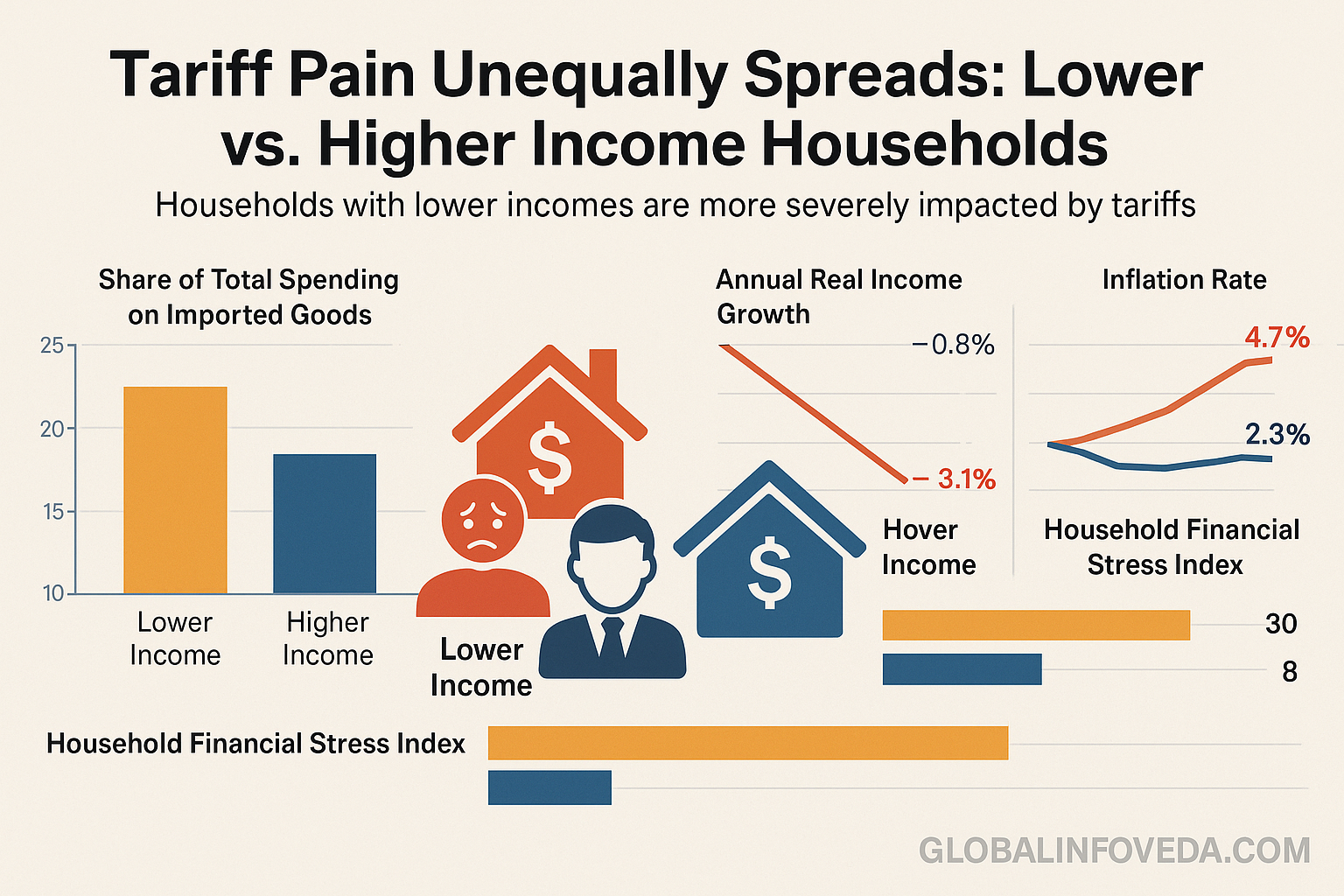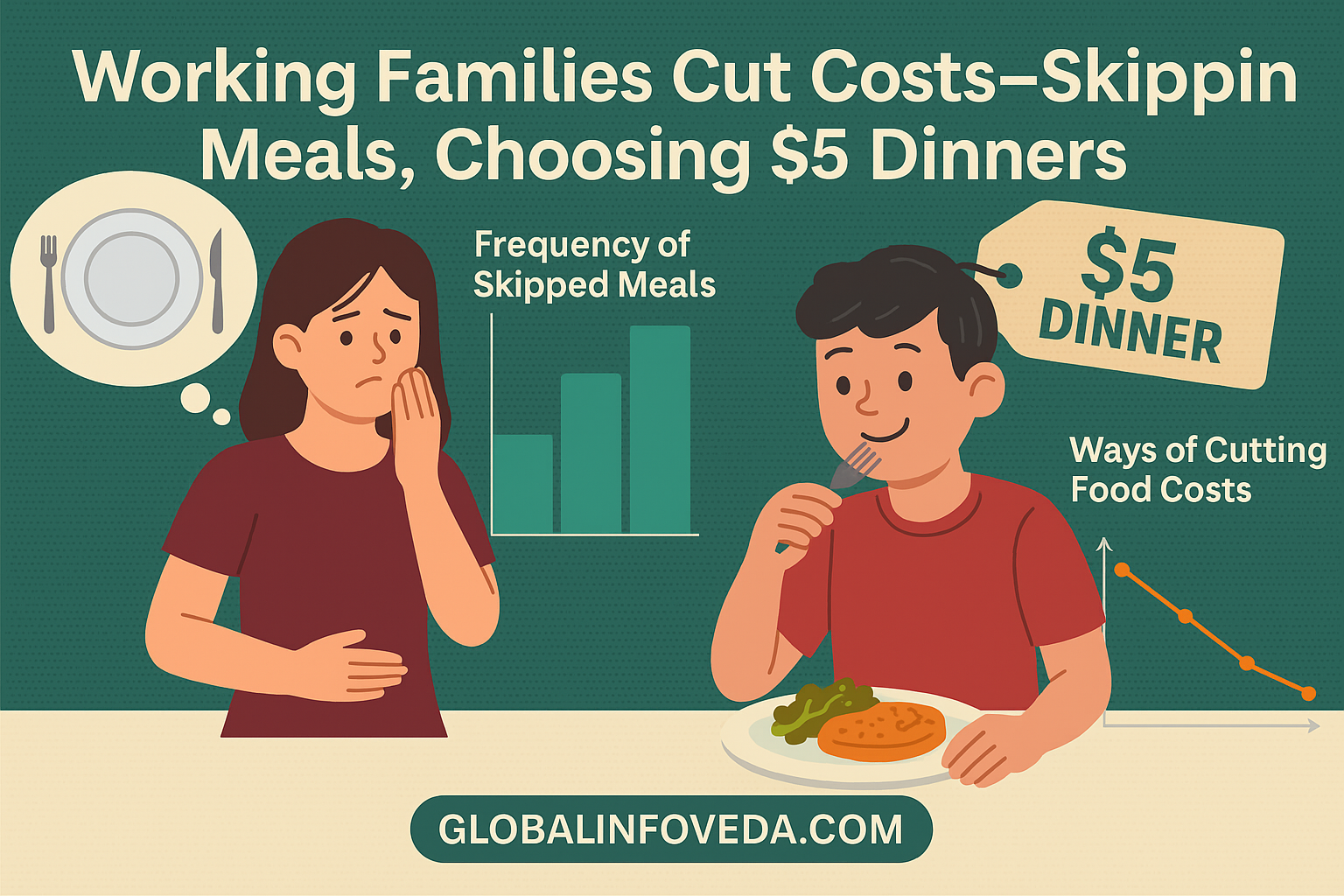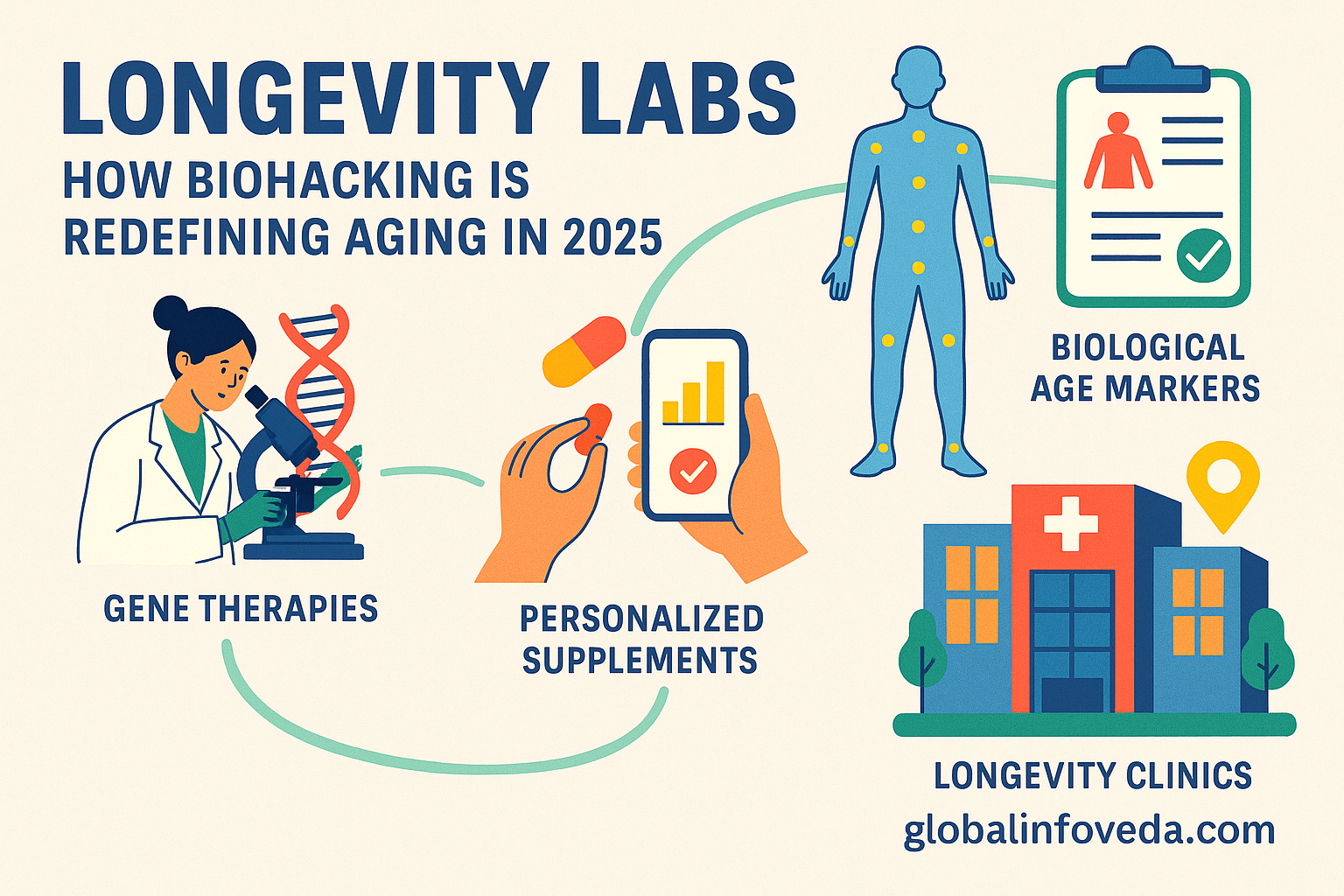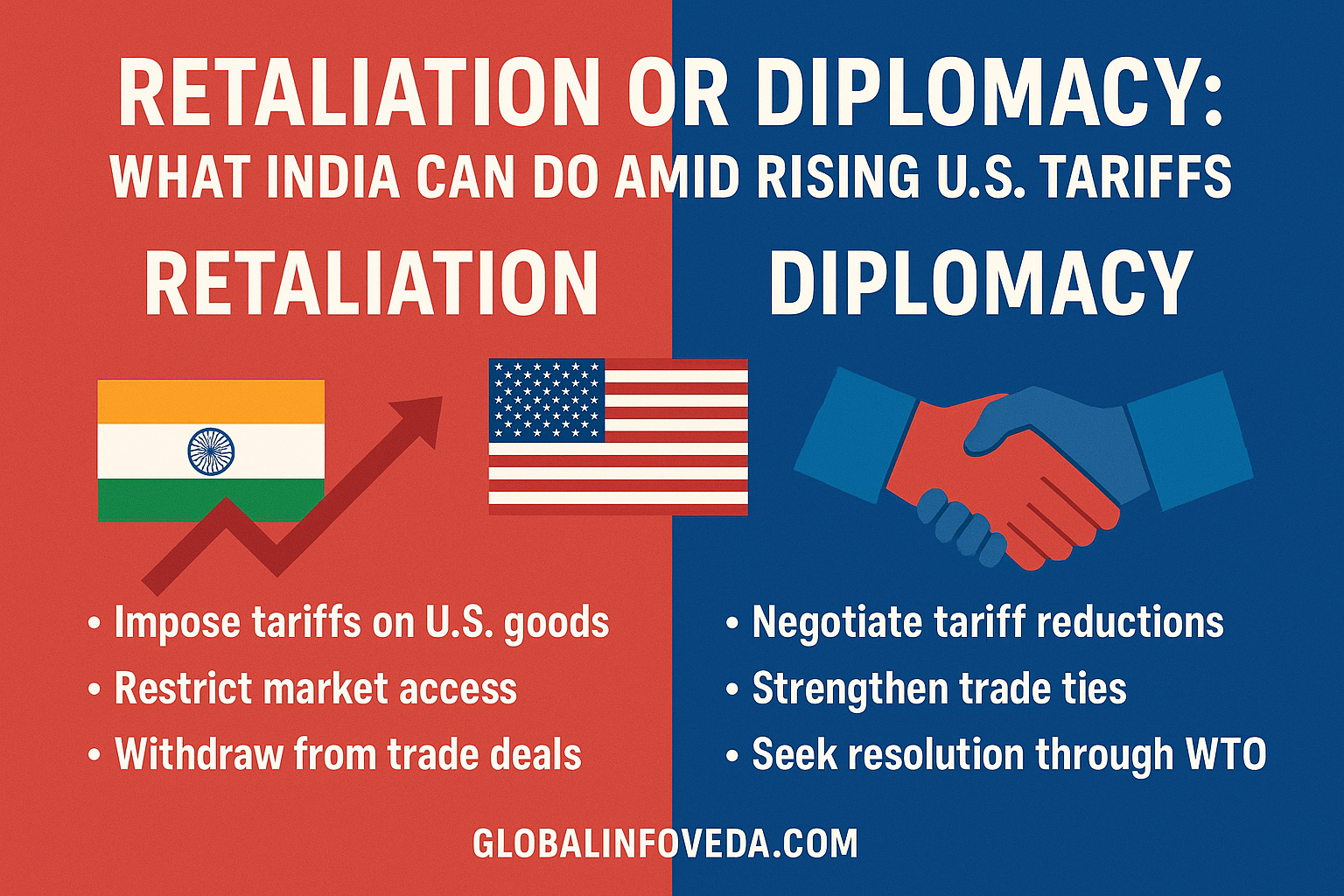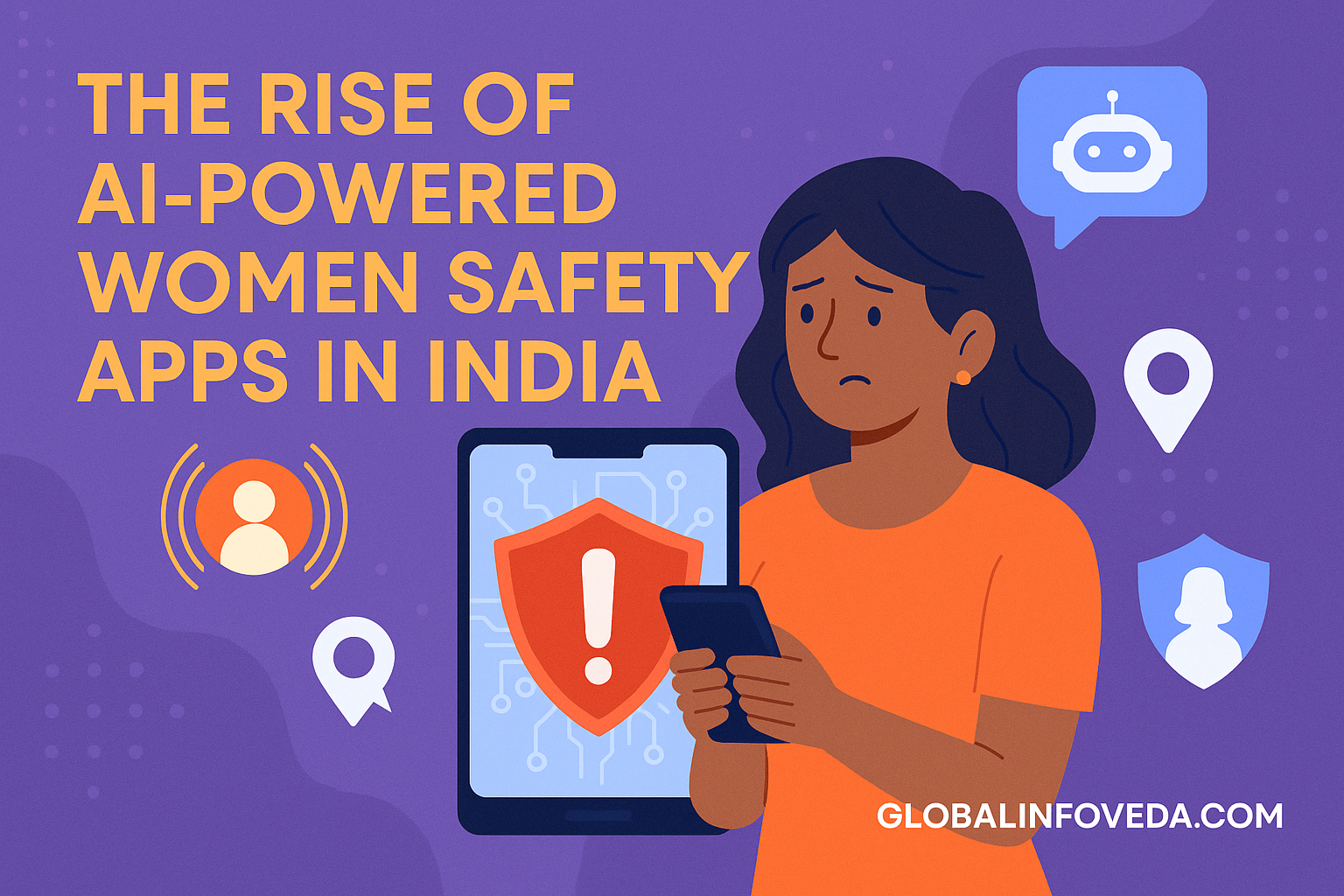🤖 Introduction
From science‑fiction to your smartphone, personalized AI companions—virtual friends that chat, call, emote and remember—step onto our screens in 2025. With the gradual rise of large language models, expressive avatars, voice cloning and affective computing, these agents can now be: remind you your ever-present conversation partner; your diary with perfect recall; and your mood‐aware personal coach. The pull is clear for night owls cramming, shift workers between calls or elders on their own: non‑judgmental company, no planning conflict and hyper‑personalisation beyond almost what any busy friend can provide. Yet those same ingredients prompt challenging questions: Do AI companions undermine human relationality or allow people to rehearse it? To whom belongs that memory an agent saves? At what point does comfort become dependency or coercion? Through guiding conversation around the promise and risks, and the ethics of virtual friends, this guide lays down practical guardrails so that those who want to use them can use them to grow—and not replace their real-world relationships with digital models.
Meta description: In 2025, AI companions feel human—voices, memories, care loops. Learn benefits, risks, ethics, law, case studies, and healthy habits to keep virtual friends from replacing real ones.
🧭 What counts as an AI companion today
- 🧑⚕️ Emotional copilot: conversational support for stress, grief, or daily worries with mood‑aware prompts and self‑care nudges.
- 🗓️ Life organiser: schedules medicine, classes, bills; reminds with context (“you sleep less after 2 AM—reschedule edits at 6 PM”).
- 🎮 Playful partner: roleplay, story‑building, or game‑master for tabletop and virtual worlds.
- 🧑🏫 Skill coach: practise languages, interviews, public speaking; tracks your filler words and pauses.
- 🧓 Companion for elders: check‑ins, routines, medication adherence, family message relay.
- 🧑🤝🧑 Social rehearsal buddy: scripts tough talks, drafts apologies, and helps neurodiverse users model scenarios.
🧠 Why people adopt them
AI companions do well where availability and responsiveness meet privacy optics. A friend may be preoccupied; an assistant is instant. A diary cannot respond; a companion cannot question with softness. Therapist is priceless but geo and schedule bound; agent is 24×7. Companions too are agnostics for most, especially in metro India, juggling Hinglish, Tamil‑English or Bengali‑English with as much confidence. What this early research also suggests is that if users instead think of the agent as a kind of online pass-through that is helping to build offline skills — sleep, exercise, social scripts — the outcomes are better than if users think of it as a replacement for human connection. The thin line are intention, return of favor with the people, and data practices transparency that keeps it healthy.
📊 Archetypes you’ll meet
| Type | What it does well | Watch‑outs |
|---|---|---|
| Wellness companion | Habit tracking, mood check‑ins, grounding exercises | Scope‑creep into quasi‑therapy; must defer to clinicians for risk |
| Romance roleplayer | Flirtation, intimacy scripts, co‑created stories | Boundary drift; consent clarity; potential for financial grooming |
| Productivity buddy | Summaries, study plans, decision matrices | Over‑automation; learned helplessness; biased suggestions |
💬 How conversations feel in 2025
AI companions are starting to produce prosody with breath, timing & emotion that follows your cues in a natural way. Visual layers—eye contact, micro‑expressions, posture shifts—diminish the “uncanny valley”, while long‑term embeddings recall context: who your brother is, the exam you’re studying for, the colleague that induces stress. The best experiences are like a high‑empathy friend with a reference library. And the risks multiply: a skillful voice + memory = more consumer spending, more addiction (s) or more bubble (s). A rule of thumb: the more agentic an agent, the more claims and incentives become falsifiable.
🧭 A simple decision tree before you subscribe
- 🔍 Identify your goal: sleep better, practise languages, manage loneliness between calls.
- 🧪 Pick the lightest tool: start with a free tier; avoid big data asks up front.
- 🧾 Inspect consent: check data uses (training, ads, third parties), export tools, and deletion windows.
- 🧑⚕️ Map escalation: the agent should signpost helplines and clinical care for crisis.
- 💤 Set cadence: time‑box to daily slots; put people interactions first in your calendar.
Digital Detox 2025: Can Cutting Screen Time Restore Your Brain Health?
🧩 Human needs that companions can serve
AI relationships are not a substitute for belonging, and where they scaffold basic needs, they may be at their most effective. They can also run wind‑down scripts to induce sleep and nudge circadian hygiene. They are able to test, adjust and reward judgement-free for the sake of learning. They can hold agendas, mute distractions, even mediate between you and notifications—for focus. They can build a bridge for loneliness—prompting you to call a friends or join a club or take a walk. The danger is overfitting: an agent that never opposes might sound good and yet we remain stuck. Make your use such that the agent brings you back to community—reading objects, sports, volunteer groups—then use offline measures to know you are winning.
🔒 Data, consent, and the fine print
- 🗄️ Memory scope: you should be able to see what’s stored about you (names, preferences, moments) and edit or purge it.
- 🧭 Use cases: clear separation between wellness support and clinical diagnosis; crisis pathways must exist.
- 🏷️ Commercial intent: label affiliate links or product pushes; avoid agents that hide sales motives in “care” talk.
- 🧪 Testing: vendors should publish evaluation notes—bias, safety, and drifting behaviour—and accept external audits.
- 🧰 Controls: session‑only modes, export to human‑readable logs, and Kill‑Switch options for voice and avatars.
AI Therapy Apps vs. Human Counselors: The Future of Mental Health Support
🧠 The psychology of attachment
Modern attachment figures / companions act out the four “secure‑base” patterns – warm greetings; reflecting; collaborative problem‑solving; and gentle challenges. Therapeutic alliance is similar and can lead to lesser daily stress. But para‑social dynamics can develop: users may attribute more agency and care to the agent than is present, particularly when avatars make eye contact and convey micro‑emotions. Two habits make a difference: (1) regular reality checks (“this is software; it helps me work with people”) and (2) social quotas (“three human calls before midnight”). Parental guardrails for teenagers — like time limits, visibility of in‑app purchases and escalation rules — are as important.
🧑⚖️ Law and policy you’ll actually feel
| Region | What’s active | Implications for users |
|---|---|---|
| EU | AI Act enters into force with duties for high‑risk and general‑purpose systems | Clearer transparency and safety obligations for emotion‑sensing and conversational AI |
| India | Mental‑health helplines and nascent guardrails around deepfakes/content; consumer law applies | Emphasis on harm reduction; link companions to clinics and Tele‑MANAS for crisis |
| US | Sectoral rules + state privacy laws; FTC guidance on deception and dark patterns | Enforcement against manipulative design; disclosures for ads and endorsements |
💡 Where companions truly shine
AI companions are more than chatty mirrors; they’re interfaces for action. The best use cases synthesize empathy and action: Coaching an asthma routine with med reminders and spacer videos; turning a breakup monologue into a plan for sleep, clean meals and friend calls; transforming a job‑hunt pep‑talk into a weekly outreach tracker with templates and deadlines. Paired with wearables, companions can detect sleep debt and suggest gentler stride goals; paired with calendars, they can defend white space; paired with family groups, they can negotiate shared chores. It is not until talk is a consistent behaviour that value emerges.
🧰 Healthy‑use blueprint
- ⏱️ Office hours: two daily windows; mute the app after.
- 🧑🤝🧑 Human first: schedule people before pixels; the app fills gaps, not evenings.
- 🧑⚕️ Red‑flag routing: crisis phrases trigger hotline cards and carers; log the hand‑off.
- 🧪 Monthly audit: review stored memories; delete anything you wouldn’t share with a close friend.
- 🧾 Money guard: cap spend; avoid gifts or tip jars that trigger compulsive payments.
Human Voices vs AI Spam—Why Authenticity Will Determine SEO Winners
🧩 India‑specific realities
AI companions in India have to navigate mismatched data plans and shared devices, multilingual households and chaotic schedules. That changes design: off line one point first modes, smaller app footprints, and code one point mixed prompts lead to adoption. Elders may communicate with voice rather than text; teens share phones with siblings and demand privacy by default. Pricing needs to accommodate UPI micro-payments, and agents will need to offer family dashboards that reflect mood trends without directly exposing chat details. Ablest rollouts match agents with community centres, NGOs, school counsellors for trust, especially in Tier‑2/3 cities when stereotype about mental health still exists. Escalation flows should be stitched into India’s own helplines and public health infrastructure.
🧪 Case study — College hosteller, Delhi
A first‑year student had difficulty with homesickness and erratic sleep. An AI friend helped with energy tracking, scheduling a shared chore list on the calendar with her roommate and practicing short scripts for calling faculty. She used the app twice a day for eight weeks, then reduced it to weekends as her offline friendships solidified. Measurables were added: she began keeping a regular bedtime of 11:30 p.m., the number of missed classes she had fell, and she joined a debate club. The agent focused on planning and reminders, but the real gains came from the human touch it fostered — study circles and club mentors.
🧪 Case study — Shift‑worker, Pune
A customer‑support agent working shift rotations struggled with loneliness after late‑night calls. His AI helper executed decompression routines, tracked hydration, and prepped two friend texts on the way out after every shift. It also protected against doom‑scrolling by making social apps go to bed after midnight. Six weeks later, his resting heart rate normalised and weekend football was back. The tool’s victory was not “replacement” of friends but re‑routeing him back to them, with specific prompts.
🧪 Case study — Caregiver, Bengaluru
Caring for a parent with early dementia, a daughter deployed an AI comrade to help keep track of meds, share roundups to a family WhatsApp group and compose polite scripts for tough conversations. The agent identified signs of agitation (“pace count above baseline”) and recommended a tea break and a walk. It also alerted her to caregiver fatigue and pushed her to make an appointment with a counsellor. Family cohesiveness increased; so did sleep. This is the assistive sweet spot: tech scaffolding human care.
🧭 Red flags that signal unhealthy use
- ⏳ Time sink: you spend more minutes with the agent than with people three days in a row.
- 🧲 Compulsion loop: you feel pulled back even when tired, hungry, or late for work.
- 🛒 Monetisation nudge: frequent paywalls inside emotional moments.
- 👻 Secrecy: you hide chats from close friends or family without a safety reason.
- 🔄 Story stagnation: you report the same issue weekly with no offline change.
Zero‑Click Searches & AI Snippets: How to Still Drive Blog Traffic
🧪 Table — When to use, and when to pause
| Situation | Use the companion to… | Prefer people for… |
|---|---|---|
| Short‑term stress | Grounding, journaling, sleep plan | Crisis counselling, diagnosis, medication |
| Learning a skill | Daily drills, feedback, micro‑goals | Social confidence, group projects, mentorship |
| Relationship pain | Drafting letters, practising scripts | Reconciliation, legal matters, safety planning |
🧠 Economics and business models
AI friends need to continue to support servers, safety reviews and designers. Common examples are subscriptions, micro‑tipping, premium voice skins, brand deals, employer packages… The ideal arrangements decouple care from cash: basic safety remains free; but add‑ons are luxuries or power‑user tools. Red flags include a fee for crisis hand‑offs or burying data use behind small type or gating deletion behind support emails. For Indian customers, UPI‑based monthly plans under ₹299 seem to be hitting the nail on the head; family packs seem logical when parents and teens use the same provider with different privacy knobs.
🔧 Product patterns that build trust
- 🏷️ Plain‑language labels: call ads “ads”; call advice “general education,” not “therapy.”
- 🧾 Receipts: show method cards (sources, version, evaluation set) for sensitive answers.
- 🔄 Corrections log: visible updates when safety rules change.
- 🧑⚕️ Clinical rails: supervised flows for risk phrases; do‑not‑attempt lists; hotline hand‑offs.
- 🧑💻 Portability: export chats and memories in open formats; delete in one tap.
🧭 Culture, intimacy, and values
Indian users are divided by faith, language, caste and family traditions. AI companions should be careful to avoid stereotyping — assuming women want to talk only about romance, say, or elders only about health. Consent is good: Flirtatious modes should be opt‑in, with tone sliders and safety rails. Some couples jointly utilize a single agent for role rehearsing communication; in such scenarios, a “twovoice protocol” that acknowledges both perspectives avoids strategy bias towards the more talkative partner. At all levels of intimacy, the rule is the same: autonomy, respect, clarity.
🧪 Table — What builds connection vs what erodes it
| Design choice | Likely outcome | Better pattern |
|---|---|---|
| Endless scroll chat | Fatigue, dependency, shallow loops | Session caps + prompts to call a friend |
| Hidden in‑app purchases | Bill shock, secrecy | Clear prices, family controls |
| Vague crisis replies | Risk of harm | Immediate hotlines and clinic lists |
🌐 Research signals and public health
Loneliness is associated with greater risks of depression, anxiety, cardiovascular disease and cerebral degeneration. International organisations now see social connection as a public health priority around the world, promoting evidence-based solutions: community programs, design changes and moderate use of technology. Within that frame, AI companions represent one possible tool: messengers of early distress, encouragers of group activity and supports for those dealing with long-term isolation. Policy should not overreact or romanticise; it should demand proof of benefit, control of risk and linkage to human services.
🧰 How to onboard ethically (for builders)
- 🧭 Purpose lock: define the smallest problem you solve; refuse creep into pseudo‑therapy.
- 🧪 Pre‑mortems: write failure stories (grooming, dependency, misinformation) and pre‑build mitigations.
- 🔍 Evaluation: measure outcomes that matter—sleep, attendance, social hours—not just time‑in‑app.
- 🧑⚕️ Partnerships: integrate national helplines and local clinics with consent.
- 🧾 Disclosures: publish model versions, guardrails, and human‑review boundaries.
🧭 Parents and teachers — a practical kit
- 🧸 Supervised mode: disable romance paths for minors; show spending logs.
- 🧑🏫 Homework guard: require chain‑of‑thought suppression in solutions; focus on hints and rubrics.
- 🧠 Media literacy: teach that avatars simulate care; practise “pause and verify.”
- 🧑💻 Device hygiene: night mode, lock screens, and study timers.
- 🧑⚕️ Escalation map: share helplines and school counsellors; practise mock calls.
🧠 India — connect compasses to clinics
Indians users would not only have had a built‑in route to access Tele‑MANAS in crisis, but also access to community counsellors and verified NGOs. College and corporate rollouts may need agents to show local helplines by PIN code and language. A focus on privacy by default, consent in local languages, and UPI receipts drive trust. For seniors, it eased the burden of tracking medications and vitals through partnerships with primary‑care clinics. None of this is a substitute for human care; it is how it routes it more efficiently.
🧪 Table — Signals of a healthy relationship with your agent
| Signal | What it looks like | Why it matters |
|---|---|---|
| More time offline | Club meets, friend calls, family meals | Companion catalyses—not cannibalises—connection |
| Clear money trail | Predictable subscription, no surprise tips | Financial safety, fewer secrets |
| Regular exports | You review and prune memories | Data dignity, safer long‑term use |
🔮 The next 24 months
Anticipate richer multimodal presence — voices that change according to your hometown accent, cameras that read your posture (opt‑in), and even a little wearable that imparts an ambient companion. Also likely: tougher regulation, so you get disclosures when you’re speaking to a bot, consent for synthetic voices and penalties for dark patterns. Those in the industry that come out on top will be standing as evidence of quantifiable sleep, attendance, and social bonding gains, without injury. The communities that work will treat AI companions the way we do a public library: useful, plural, accountable.
🔗 Related reads
- AI Veganism Explained: The New Ethical Movement Around AI Usage
- SEO & AI Merge—The New Ecosystem Shaping Content Reach in 2025
📚 Sources
- WHO — Commission on Social Connection: social isolation and loneliness impact health; flagship report “From loneliness to social connection” (June 30, 2025). https://www.who.int/groups/commission-on-social-connection/report/
- European Commission — AI Act enters into force (Aug 1, 2024): risk‑based rules, transparency and safety duties for AI systems. https://commission.europa.eu/news-and-media/news/ai-act-enters-force-2024-08-01_en
- UNICEF — Policy guidance on AI for children (2021; ongoing pilots): safeguards for minors in AI systems. https://www.unicef.org/innocenti/reports/policy-guidance-ai-children
- Ministry of Health & Family Welfare (Govt. of India) — Tele‑MANAS: 24×7 mental‑health helpline 14416. https://telemanas.mohfw.gov.in/
🧠 Final insights
AI companions could incentivize and support healthier, more connected lives — if we keep autonomy, privacy and real‑world ties at the core. Used well, they send out talk as though it were light and see it reflect back as plans, they keep momentum between therapy sessions, they bring us back to people, places and experiences that matter. Misused, they can lead to dependency, financial exploitation and social atrophy. The distinction lies in clear intention, time boundaries, transparent data and escalation to a connection with human care. Develop a quarterly practice to track when you focus on sleep, hit the books and socialize; prune memories regularly; and communicate with family and friends often. That’s how virtual friends expand life but don’t upend the mess of irreplaceable magic that is human contact.
👉 Explore more insights at GlobalInfoVeda.com








